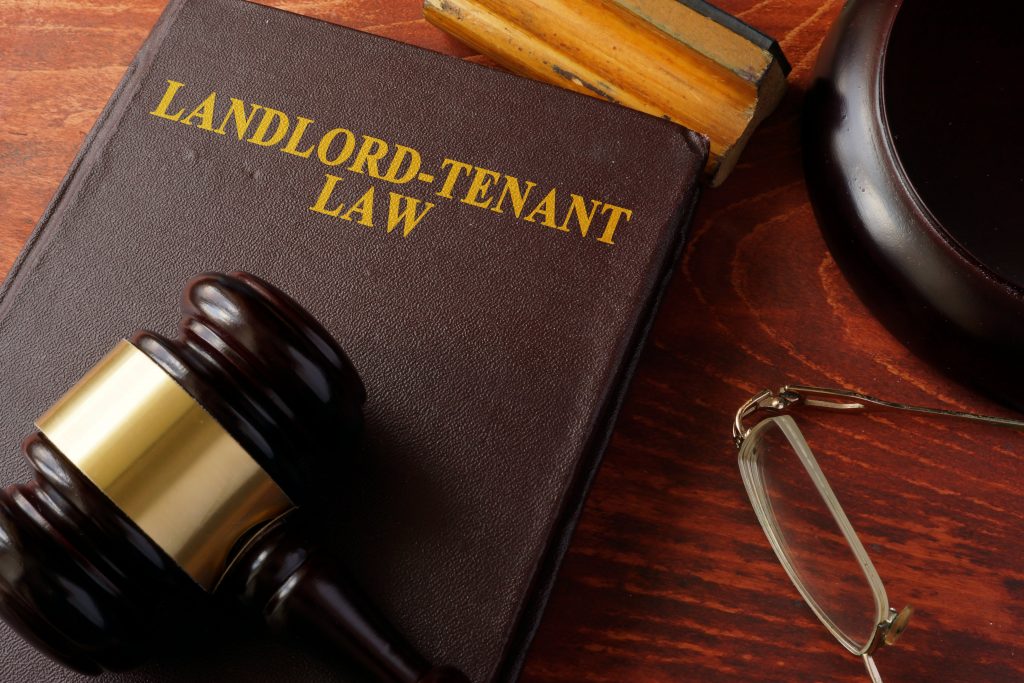The California Tenant Protection Act of 2019, popularly referred to as Assembly Bill or AB 1482, is a statewide law signed by Governor Newsome on October 8, 2019.
AB 1482 took effect on January 1, 2020 and is set to expire on January 1, 2030.
Whether you’re a landlord or tenant, it’s important for you to know how AB 1482 can potentially affect you by getting in touch with us at Express Evictions. You can also use this as your guide in understanding and mastering the key points in this law.
Highlights of AB 1482
AB 1482 is an important California law with the following highlights:
- It requires a landlord to establish just cause to be able to terminate a tenancy.
- It sets the limit to annual rent increases to no more than 5 percent plus the local consumer price index or CPI (inflation rate), or 10 percent (whichever is lower).
- No tenant is allowed to waive their rights to these protections. Any agreement to do so by the tenant is void as it runs contrary to public policy.
- AB 1482 is superseded by local eviction and/or rent increase regulations, and it does not remove or replace existing local tenant protections.
AB 1482 Coverage
AB 1482 is a statewide law that affects all types of housing located in California, except for the following exemption categories:
Units exempted from rent cap limitations and “just cause” eviction regulations
AB 1482 does not apply to the following unit classifications:
- Units that were built in the last 15 years; however, this applies on a rolling basis. This means that units built on January 1, 2006 were not covered when the law took effect on January 1, 2020, but are covered on and after January 1, 2021.
- Units already restricted by a deed, regulatory restrictions, or other recorded document which limits their affordability to low or moderate-income households
- Deed-restricted dormitories
- Owner-occupied duplexes (includes accessory dwelling units or ADUs)
- Certain single-family homes and condominiums – these are only exempt if they are not owned by a corporation, real estate investment trust (REIT) or an LLC with at least one corporate member, and if the landlord notified the tenant that the tenancy is not subject to the “just cause” and rent increase limitations in writing as specified in Civil Code Sections 1946.2(e)(8)(B)(i) and 1947.12(d)(5)(B)(i).
Owners of exempt properties are required to provide tenants with a specific notice regarding the exemption starting July 1, 2020.
For tenancies existing before July 1, 2020, said notice may be provided in the rental agreement, but a written notice must be provided by August 1, 2020, or as an addendum to the lease or rental agreement.
For tenancies starting or renewed on or after July 1, 2020, said notice must be provided as an addendum to the lease or rental agreement, or as a written notice signed by the tenant, with a copy provided to the tenant.
Units that are exempt from the rent cap limitations
The rent cap limitations embodied in AB 1482 do not apply to the following:
- Units that are already subject to a local rent control ordinance restricting annual rent increases to an amount less than 5 percent + CPI.
Units that are exempt from the “just cause” regulations
The “just cause” regulations embodied in AB 1482 do not apply to the following:
- Units already subject to a local ordinance that requires “just cause” to terminate a tenancy and is more protective than state law
- Single-family, owner-occupied residences where the owner rents no more than two bedrooms or units (this includes ADUs and junior ADUs)
- Housing accommodation where the tenant shares a bathroom or kitchen facilities with the owner, if the owner lives at the property as their principal residence
- Housing accommodation provided by a nonprofit hospital, church, extended care facility, licensed extended care facility for the elderly, or an adult residential facility
- Transient and tourist hotel occupancy as defined by Civil Code Section 1940(b)
AB 1482 Eviction Provisions
AB 1482 prohibits evictions and non-renewals of leases without a just cause. However, the provisions of AB 1482 only apply after all tenants have lived in a unit for at least one year, or where at least one tenant has occupied the unit for 2 years.
NOTE: There are two types of “just cause”; that is, “At Fault Just Cause,” and “No-Fault Just Cause.”
- “At Fault Just Cause” includes the inability or failure to pay rent, criminal activity, assigning the lease or subletting, or the breach of a material term of the lease.
- “No Fault Just Cause” includes instances where the owner/owner’s family plans to occupy the property, withdraw the property from the rental market or intend to demolish or substantially remodel the property, or comply with a local ordinance or order issued by a government agency.
A landlord cannot terminate a tenancy unless they have one of the allowable “just cause” reasons, which must be expressly stated in the notice of tenancy termination.
- Landlords must give tenants an opportunity to address “curable lease violations.” Examples of these include keeping a pet when no pets are allowed, not keeping the premises clean and sanitary, and parking in an unauthorized parking area.
- A landlord who wants to convert their rentals into condos or “substantially” remodel their property is required to provide relocation fees equivalent to one month of rent.
These provisions do not apply to cities that already have their own local “just cause” laws, such as San Francisco, Santa Monica, Los Angeles, etc.
Limits of Rent Increase Under AB 1482
For units covered by AB 1482, the annual rent increase is limited to no more than 5 percent plus the percentage change in the cost of living for the area where the property is located, or 10 percent – whichever is lower.
NOTE: “Percentage change in the cost of living” refers to the percentage change in the consumer price index (CPI) for all urban consumers for all items for the metropolitan area in which the property is located, as published by the United States Bureau of Labor Statistics. If there is no regional index available, the California Consumer Price Index for All Urban Consumers for all items, as determined by the Department of Industrial Relations, shall apply (www.dir.ca.gov/OPRL/CAPriceIndex.htm).
- For rent increases that take place before August 1 of any calendar year, the percentage change is calculated using the amount published for April (or March, if no amount is published for April) of the immediately preceding calendar year and April (or March) of the year before that.
- For rent increases that take effect on or after August 1 of any calendar year, the percentage change is calculated using the amount published for April (or March, if no amount is published for April) of that calendar year and April (or March) of the immediately preceding calendar year.
- The percentage change should be rounded off to the nearest one-tenth of 1 percent.
- There should be no more than two rent increases within a 12-month period, and the combined amount of the rent increase cannot exceed the 5 percent + CPI cap.
- If the rent increased by more than 5 percent + CPI between March 15, 2019 and January 1, 2020, then on January 1, 2020 the rent must revert back to the rent on March 15, 2019, plus the allowable increase of 5 percent + CPI. Landlords don’t have to return over payments of rent made between March 15, 2019 and January 1, 2020.
- The sum of the rent paid by subtenants to a master tenant must not exceed the rent charged by the landlord.
- There is no cap on the initial rent that can be charged for a vacant unit.
Steps to Take in Case of an AB 1482 Violation
A tenant who suspects their landlord has increased the rent in violation of AB 1482 can contact the Rent Board through their counseling hotline at 415-252-4600 to get information about their rights.
If a tenant is of the opinion that a rent increase violates AB 1482 or a state law, they can file a relevant report under the Tenant Protection Act with the Rent Board. The board would then notify the landlord about the tenant’s report and advise the landlord about the relevant law.
But since the Rent Board is not a law enforcement agency and does not provide legal advice, hold hearings or dispute settlements in relation to AB 1482, tenant-landlord disagreements concerning this law can only be enforced in state court.
If you are in a similar situation or have questions regarding AB 1482, please get in touch with us at Express Evictions. We’ll be happy to help.






